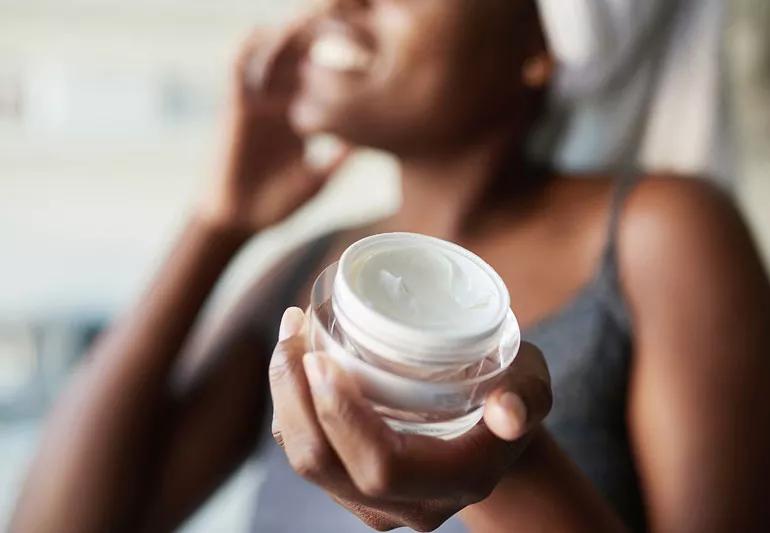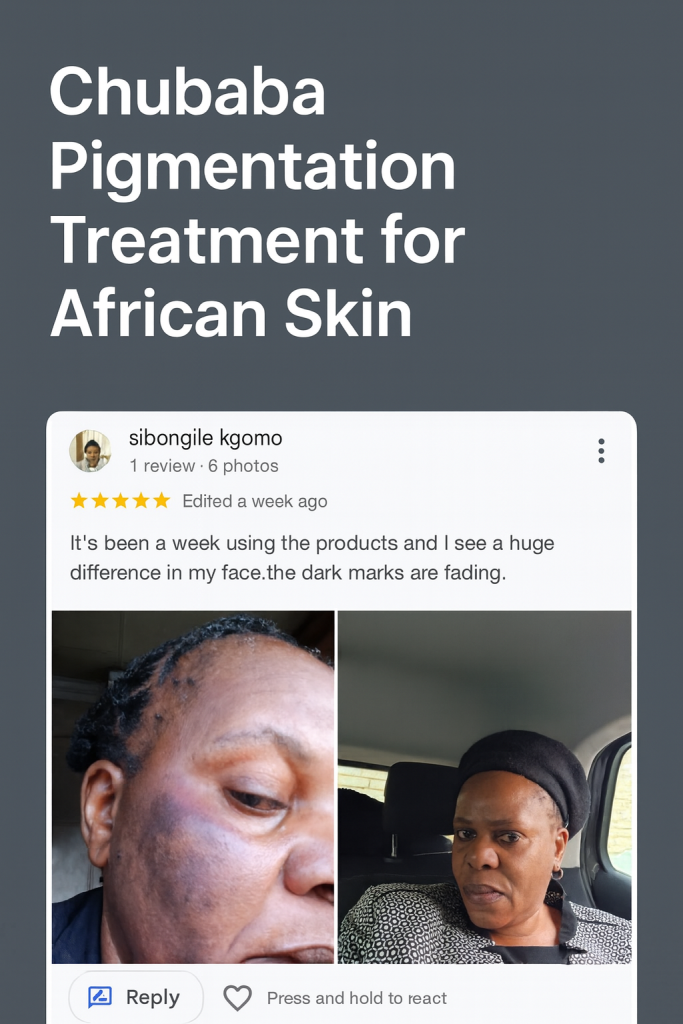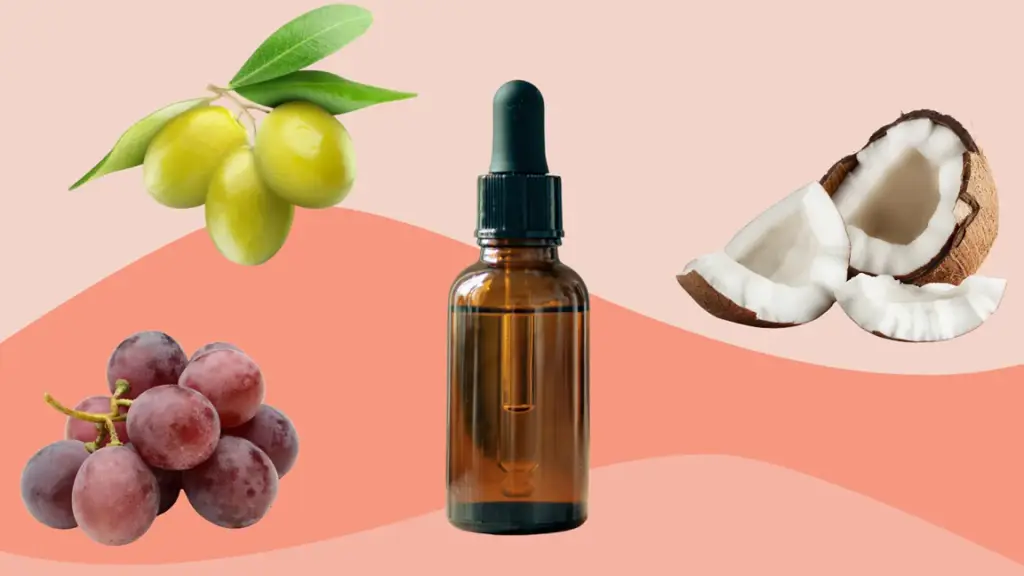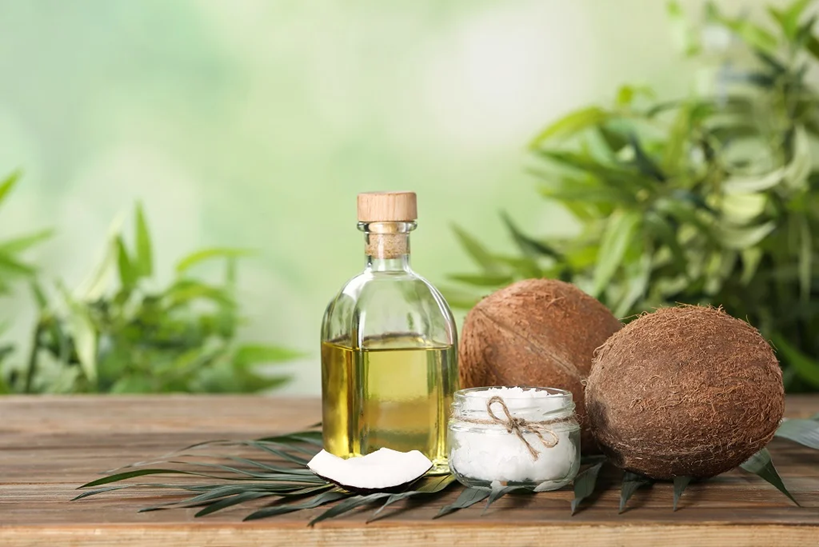
Blog
Why Organic Skincare Is Safer for Sensitive Skin: The Essential Guide
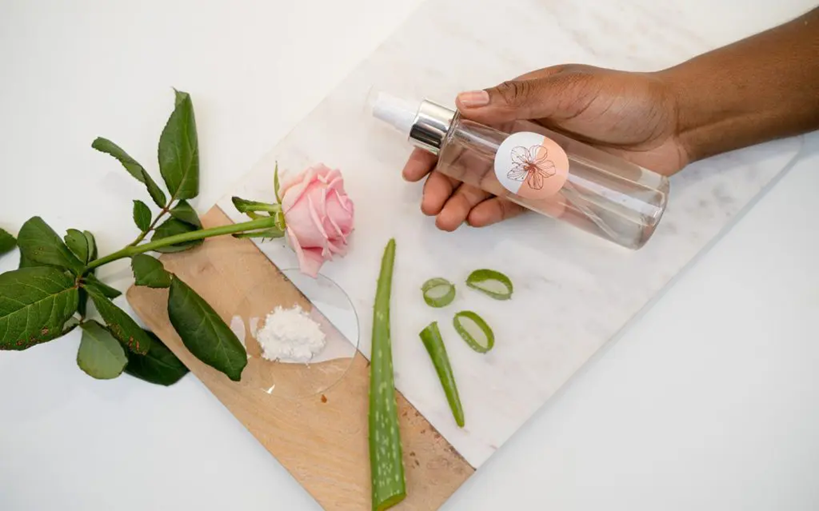
For African women with sensitive skin, skincare can feel like walking a fine line — one harsh cleanser or chemical-laden cream can trigger irritation, dryness, or breakouts. Sensitive skin needs gentle, nourishing care that supports its natural balance rather than disrupting it.
That’s where organic skincare shines. Crafted from naturally derived ingredients and free from artificial additives, these products strengthen the skin barrier while promoting long-term health and resilience.
Across South Africa and the continent, more women are turning to organic beauty as a safer, more authentic approach to radiant skin. In this guide, you’ll discover why organic skincare is ideal for sensitive skin, the science behind its soothing power, and how to create a calm, hydrated, and glowing routine that truly works for you.
Understanding Sensitive Skin
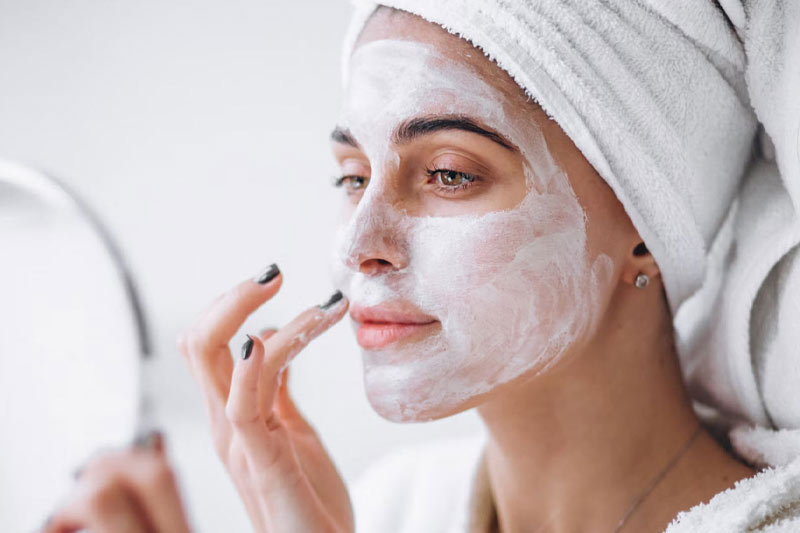
Sensitive skin isn’t a medical condition — it’s a sign that your skin barrier is more reactive than usual. When the skin’s protective layer becomes weak, it loses moisture easily and reacts to ingredients, temperature, or stress.
Common Triggers:
- Harsh cleansers or exfoliants
- Synthetic fragrances and preservatives
- Sun exposure and pollution
- Hormonal changes or stress
- Dry climates, especially during South African winters
Signs of Sensitive Skin:
- Tightness or burning after washing
- Flaking or rough patches
- Redness or visible irritation
- Stinging when applying new products
Once you understand what your skin needs — gentleness, hydration, and balance — you can choose ingredients that strengthen it naturally.
Why Organic Skincare Is Safer
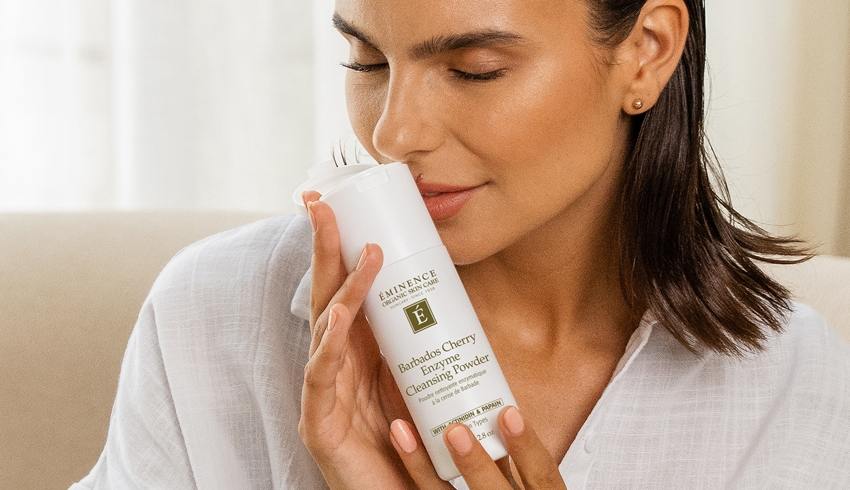
Organic skincare avoids the harsh chemicals found in many conventional products. Instead, it uses botanical extracts, essential oils, and natural antioxidants that soothe and repair your skin.
Here’s why it’s particularly beneficial for African women with sensitive skin.
1. Free from Harsh Chemicals
Synthetic ingredients like parabens, sulfates, and artificial fragrances can strip the skin’s natural oils, leaving it dry and vulnerable. Organic formulations avoid these irritants, relying instead on plant-based alternatives that cleanse and moisturize without damaging your barrier.
2. Rich in Nutrients and Antioxidants
Organic ingredients are packed with vitamins, fatty acids, and antioxidants that nourish the skin and protect it from oxidative stress — one of the leading causes of inflammation and aging.
3. Naturally Hydrating
Many African women experience dryness due to climate and water hardness. Organic products often include natural humectants like honey and aloe vera that attract moisture, and emollients like shea butter that lock it in.
4. Gentle on the Microbiome
Your skin has a natural ecosystem of good bacteria that keeps it healthy. Harsh cleansers can disrupt this balance, but organic products preserve it — helping reduce breakouts and sensitivity over time.
5. Suitable for Long-Term Use
Because they’re non-toxic and non-sensitizing, organic products are safe for daily use. You don’t have to worry about long-term buildup of synthetic chemicals that could cause irritation later.
The Power of African Organic Ingredients
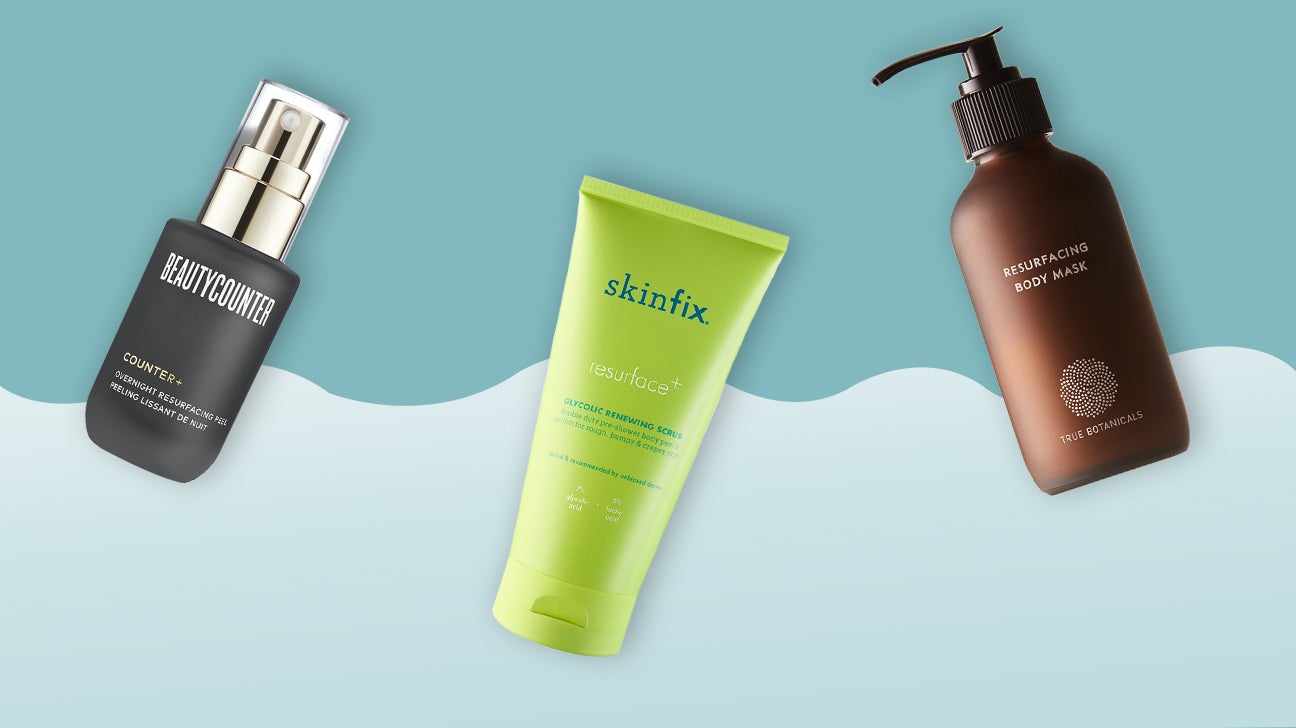
Africa is home to some of the world’s most powerful natural skincare ingredients — many of which form the foundation of modern organic beauty. These raw ingredients are rich in nutrients and naturally suited to melanin-rich, sensitive skin types.
1. Shea Butter
Deeply moisturizing and anti-inflammatory, shea butter soothes irritation, softens rough skin, and restores elasticity.
2. Baobab Oil
Known as the “Tree of Life” oil, baobab is rich in vitamins A, D, and E. It promotes healing, reduces redness, and helps maintain hydration.
3. Aloe Vera
A natural coolant and moisturizer that calms irritation and supports skin repair. Perfect for sun-exposed or reactive skin.
4. Marula Oil
High in antioxidants and essential fatty acids, marula oil hydrates without clogging pores — ideal for combination or acne-prone skin.
5. Rooibos Extract
A South African treasure packed with anti-aging and anti-inflammatory properties. Rooibos helps fade irritation while protecting from pollution and UV damage.
These ingredients are nature’s way of giving African women exactly what their skin needs — moisture, protection, and balance.
Common Ingredients to Avoid if You Have Sensitive Skin
If you’re switching to organic skincare, avoid products containing:
- Sulfates (SLS, SLES) – They strip natural oils and cause irritation.
- Artificial Fragrances – These are a leading cause of allergic reactions.
- Alcohols (denatured, isopropyl) – They dry out the skin.
- Parabens and Formaldehyde Preservatives – Potential hormone disruptors and irritants.
- Synthetic Colorants or Dyes – They can clog pores and inflame sensitive skin.
The more natural and simple your ingredient list, the better your skin will respond.
Building a Natural Skincare Routine for Sensitive Skin
Switching to organic products is only the first step. You also need a consistent, gentle routine that allows your skin to heal and strengthen.
Step 1: Gentle Cleansing
Use a mild, sulfate-free cleanser infused with aloe vera or chamomile. These ingredients clean without over-drying. Wash with lukewarm water — not hot — to avoid stripping your skin.
Step 2: Hydrating Toner
Apply a rosewater or witch hazel toner to balance your pH levels. Avoid toners with alcohol or synthetic fragrance.
Step 3: Moisturize Daily
Choose a rich, natural moisturizer containing shea butter or baobab oil. Massage gently to stimulate blood flow and absorption.
Step 4: Weekly Mask or Treatment
Use a soothing mask made from honey, oatmeal, or clay once a week. These remove impurities while calming the skin.
Step 5: Sun Protection
Even melanin-rich skin needs SPF. Opt for a mineral-based sunscreen with zinc oxide or titanium dioxide — these are gentle and effective.
How to Transition to Organic Products Safely
1. Start Slowly
Introduce one new organic product at a time. This helps your skin adjust and lets you identify any sensitivities.
2. Patch Test
Apply a small amount of product to your inner wrist or jawline. Wait 24 hours to ensure no reaction before full use.
3. Stay Consistent
Give your skin at least 3–4 weeks to adapt. Natural ingredients work gradually but offer lasting results.
4. Hydrate and Eat Well
Organic skincare works best when paired with a balanced diet and good hydration. Include fruits, vegetables, and healthy fats in your meals.
The Luxury of Simplicity
The beauty of organic skincare lies in its simplicity — minimal ingredients, maximum nourishment. For African women, this simplicity is also empowering: it means returning to natural beauty traditions that have stood the test of time.
Organic skincare is not just about what’s left out — it’s about what’s included. Every ingredient serves a purpose, every product nourishes, and every routine honors your skin’s natural rhythm.
Where to Buy Authentic Organic Skincare in South Africa

When it comes to sensitive skin, quality is everything. Choose brands that are transparent about their ingredients and committed to ethical, sustainable sourcing. For truly authentic organic skincare, Black African stands out — a proudly South African brand that celebrates natural beauty through purity and heritage.
Why Choose Black African
- 100% natural and organic ingredients — shea butter, baobab oil, marula oil, and aloe vera
- Free from parabens, sulfates, alcohol, and synthetic fragrances
- Gentle formulations ideal for sensitive or reactive skin
- Eco-friendly and ethically produced to support African communities
- Convenient nationwide delivery
From daily moisturizers to complete skincare routines, Black African offers pure, effective products designed for African women — by African experts.
FAQs
How can I identify truly organic skincare products?
Look for the USDA Organic seal or other recognized certification bodies. Organic skincare products typically meet strict safety standards verified by the United States Department of Agriculture. Products labeled “USDA Organic” guarantee ethical practices, no animal testing, and sustainable ingredient sourcing that supports local ecosystems and a healthier planet.
Are organic products more effective for skin concerns?
Yes. Organic skin care products with green tea extract, vitamin E, and herbal extracts promote skin health and help calm sensitivity. They nourish deeply, unlike conventional skincare products that may include harsh preservatives or harmful chemicals. Coconut oil and facial moisturizers in organic ranges also improve hydration and balance for sensitive skin.
Why is organic skincare better for sensitive skin?
Organic skincare products are made from plant-based ingredients grown through organic farming practices that avoid synthetic pesticides and genetically modified organisms. Unlike traditional skincare products or synthetic counterparts, natural and organic skincare is gentle and reduces skin irritation and contact dermatitis. These natural products are better for your skin because they deliver essential nutrients for maintaining healthy skin without harsh chemicals or artificial fragrances.
Is organic skincare just a trend or truly safer?
It’s not just a trend—the growing awareness around organic skin care reflects a shift toward long-term wellness and sustainability. Beyond avoiding marketing gimmicks, organic beauty focuses on the true essence of purity, cruelty-free production, and lower carbon footprint. Choosing natural skincare products means making informed choices for both your skin and the environment.
Conclusion
Sensitive skin deserves kindness — not chemicals. Organic skincare provides that gentle care by harnessing the natural healing power of African ingredients.
From soothing aloe vera to rich baobab and shea butter, these pure botanicals protect your skin barrier, calm irritation, and restore radiance naturally. For African women seeking long-term results without compromise, organic skincare isn’t just safer — it’s smarter. It’s beauty rooted in nature, authenticity, and self-respect.
And with brands like Black African leading the way in South Africa, the future of skincare is not only organic — it’s proudly African.
Because true luxury lies in what’s pure, simple, and made for you.

